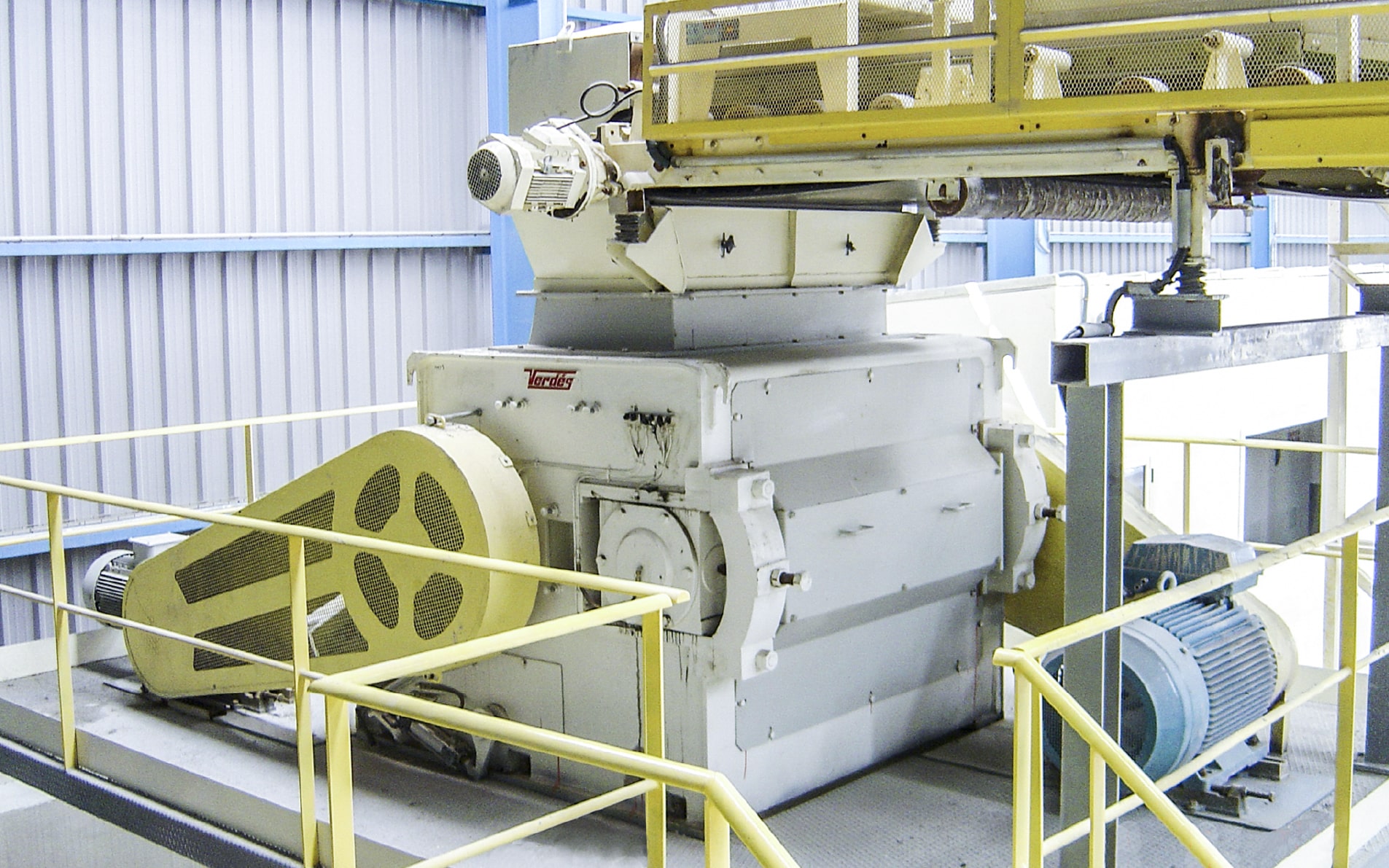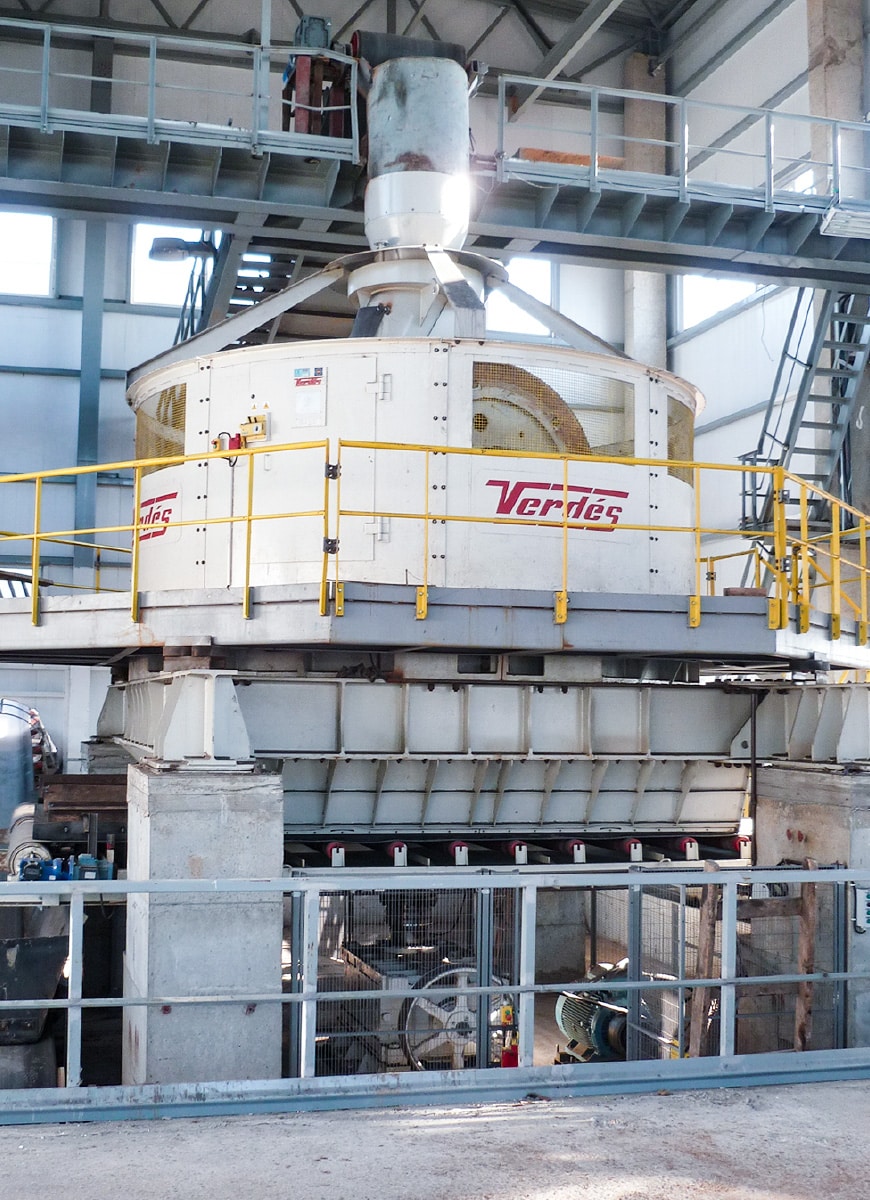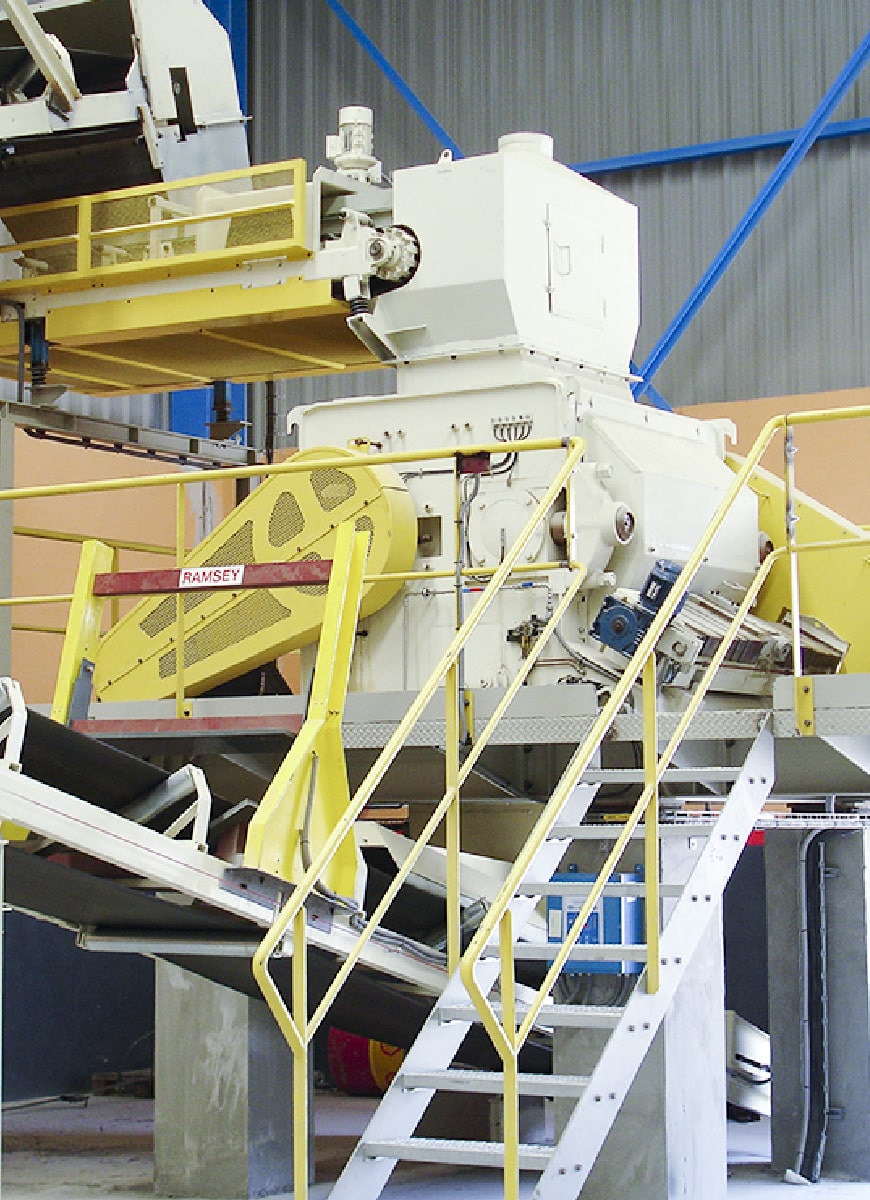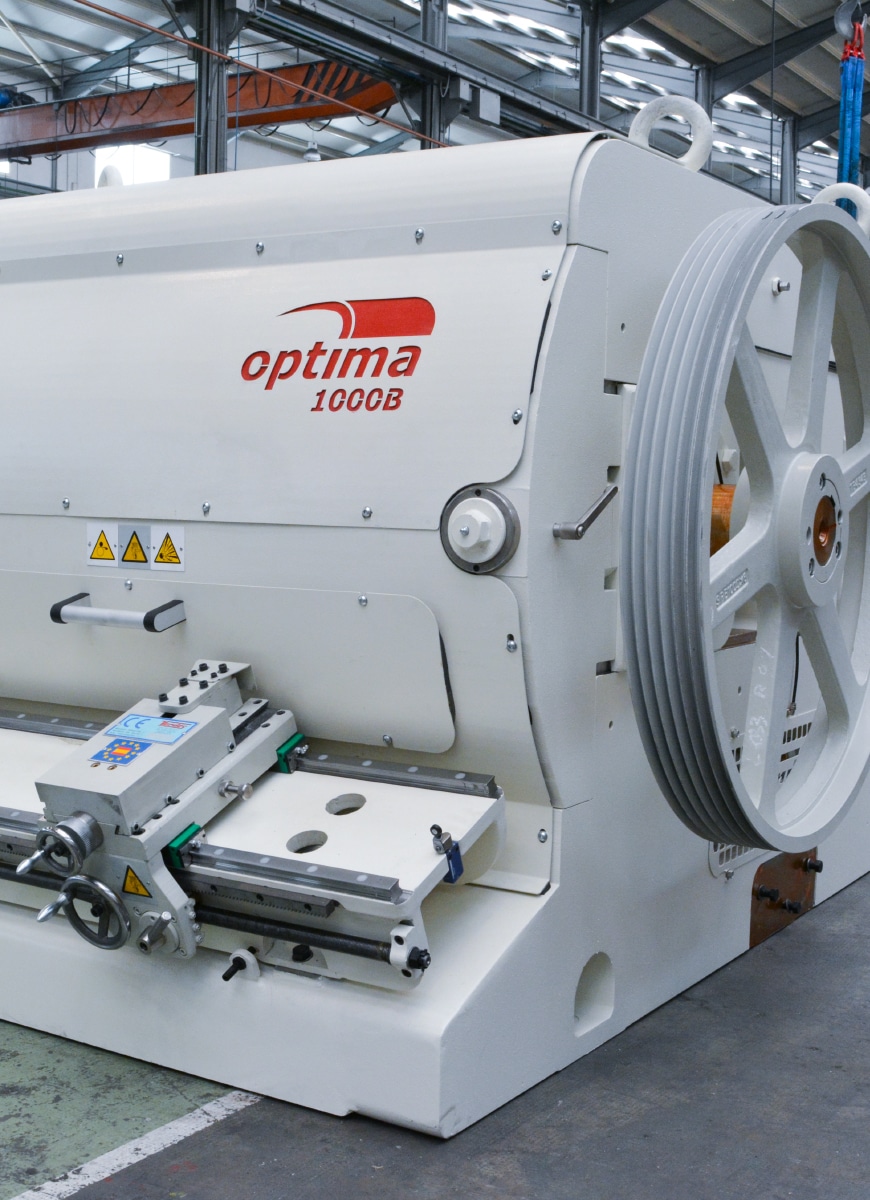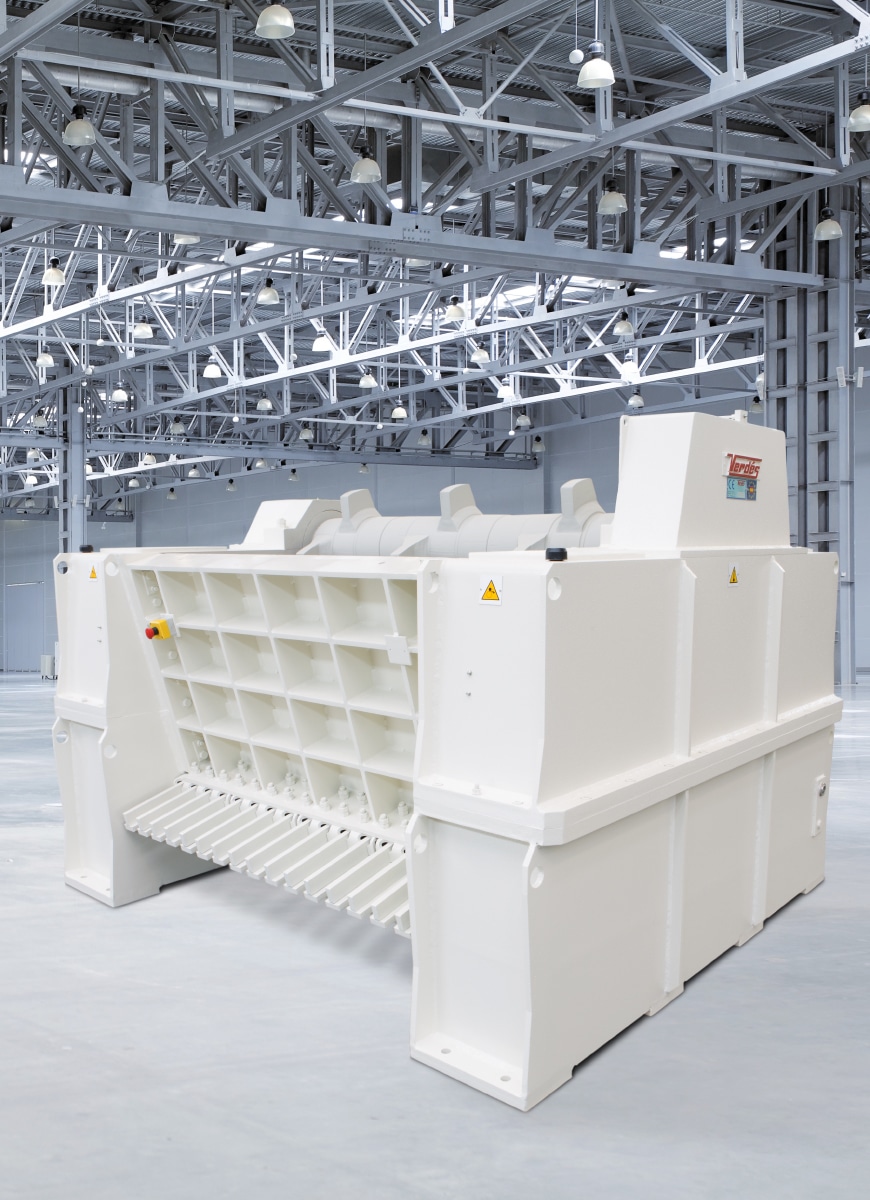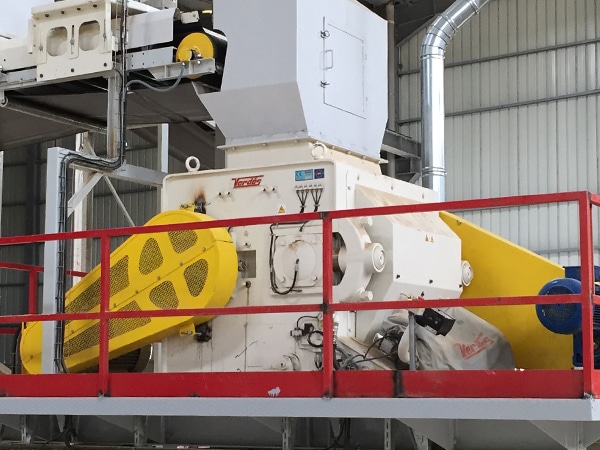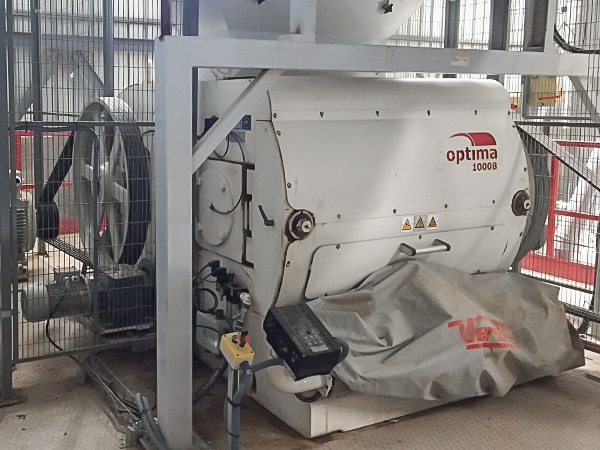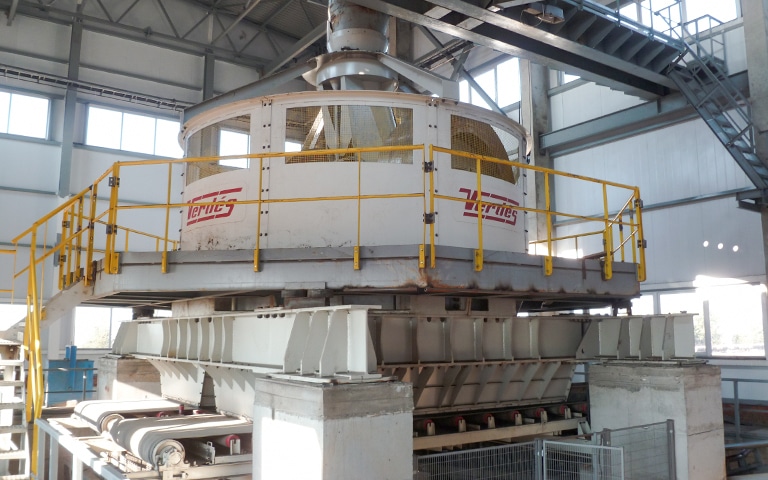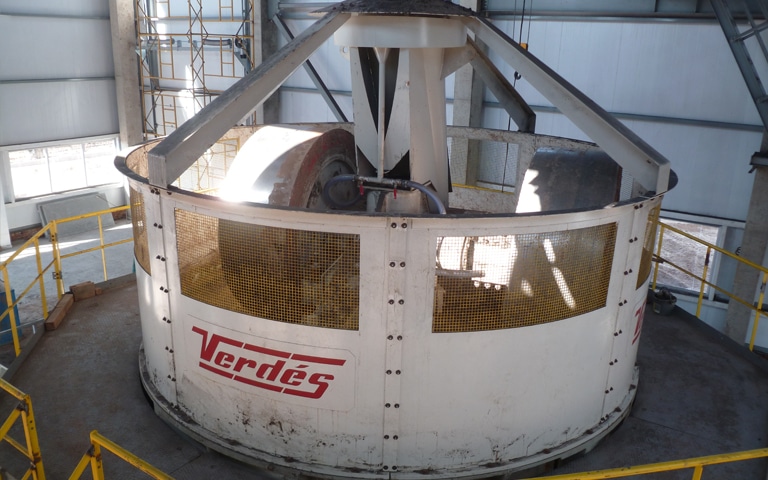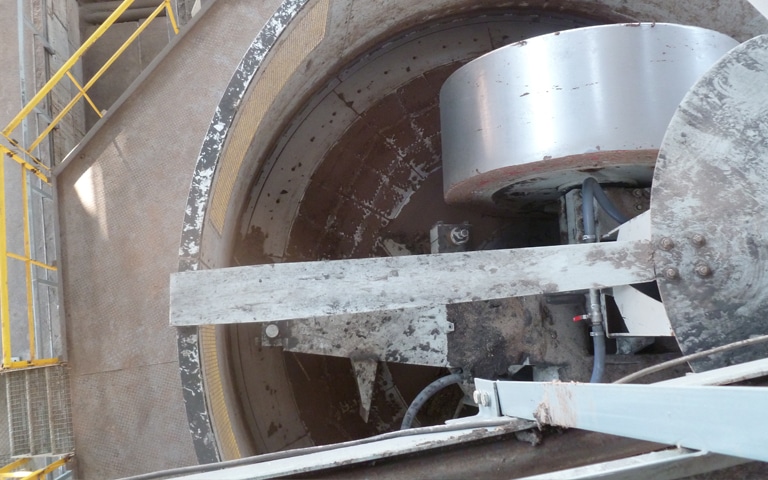
We understand wet processing as the process capable of working with clays above 12% humidity. The main debate lies in the selection of equipment that can be used for secondary grinding, after a primary phase of crushing. In this case, the ceramicist should choose between the Pan Grinder and the Crusher, based on the cost and space available, the moisture content and abrasion rate of their clays.
After this secondary grinding phase, a rolling mill is used to achieve more finely granulated clay. With a second and occasionally third laminate, suitable crushing qualities are achieved to produce ceramic products with added value, such as stoneware, roof tiles or facing brick.
Case Studies
Need:
An Algerian client wanted to produce 270,000 t/year of hollow ceramic product and entrusted Verdés with the supply of a complete clay preparation and shaping line. Given that the available raw material had a medium/high moisture content, we recommended a semi-wet preparation process.
Solution and Results:
The solution installed included all the equipment for a complete preparation and shaping line, including a Magna 675 extruder. For secondary and refining milling, Verdés supplied a set of machines with a capacity of 100 t/h, consisting of: a 127C disintegrator crusher, an Optima 1000B roller mill (working with a spacing o 3.5-4 mm) and a second Optima 1200B refining roller mill (working with a spacing o 1.2-1.5 mm, as required). As a result, the client obtained the desired production and quality.
Need:
A Client from Belarus who always worked with a disintegrator mill in his Brick plant, was unsatisfied with its clay preparation degree, as it did not allow them to produce big formats and thick-wall products.
Solution and Results:
In order to solve this issue, we designed and manufactured specially for this Client a large model of wet pan mill, the 184-D, with 2,2 m runner rings and an overall weight higher than 100T. The Client showed us its satisfaction with the results since the very first moment that this machine started working. Nowadays the machine works at a rate of 1,000 T/day of clay with the required milling grade to produce high-quality large formats thick-wall ceramic products.


